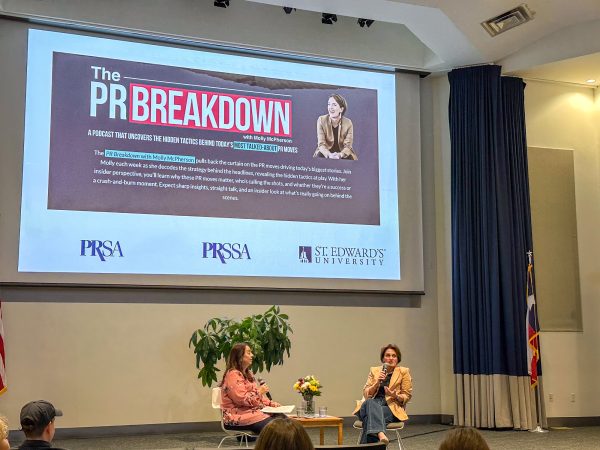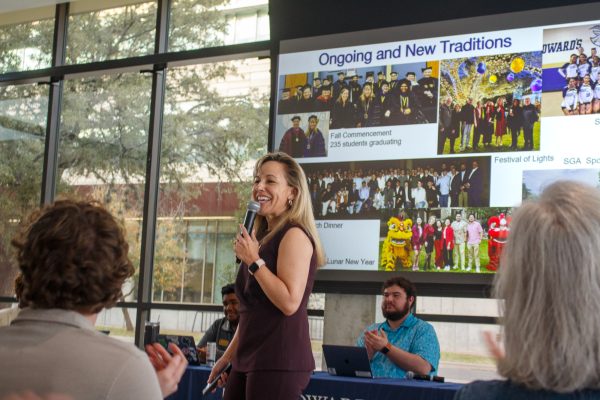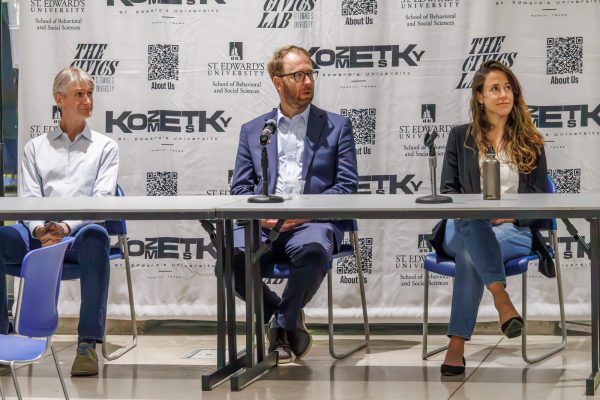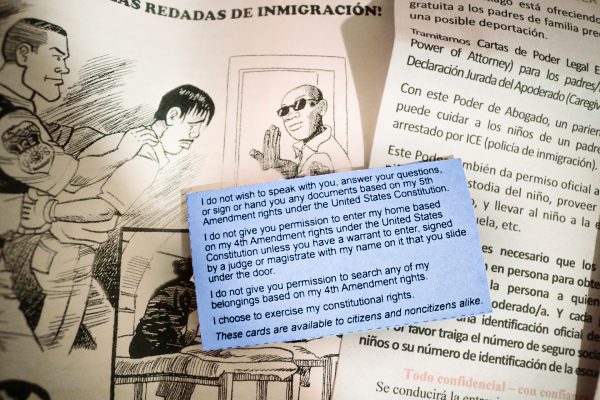Students to serve in Dominican Republic for Spring Break trip
For most St. Edward’s University students the concept of “home” is a familiar and comfortable idea. But in many countries, including the Dominican Republic, people often identify the word “home” with a small, poorly constructed shack. This spring break, 13 St. Edward’s students are working to change that reality for one family.
“If you can go build a house, you can do anything,” Director of International Education Holly Carter said.
On March 7, Carter will lead a group of St. Edward’s students on a journey to the Dominican Republic where they will participate in a nine-day Habitat for Humanity Global Village build. For eight weeks leading up to the trip the group has been meeting as a class to learn about poverty, Habitat for Humanity and Dominican Republic culture to prepare for the trip.
Habitat for Humanity is a large non-profit organization that works to improve housing conditions for people throughout the world. Carter has a long history with the organization, particularly working in the Global Village part of the organization which sends people around the world to build houses. After leading a group of students at a previous university on a Habitat build, Carter decided it was time to bring this opportunity to St. Edward’s students.
“The students from the first trip really inspired me to put it out there for St. Ed’s students,” Carter said. “And the St. Ed’s students got involved.”
Alain Cabrera is one of the students who jumped at the opportunity to get involved in this trip. As a first generation American with parents originally from the Dominican Republic, Cabrera holds a deep personal connection with this trip.
“It was a way for me to give back to my community and heritage,” Cabrera said. “I immediately wanted to sign up.”
Cabrera, a 34-year-old graduate student, has participated in local Habitat for Humanity builds before, but is new to the Global Village experience, in which the team will build a house from the ground up.
“It will be in conditions that are generally extreme poverty and generally places that don’t have running water,” Carter said. “We’ll get up at six, have breakfast at seven and we’ll start building at eight. We will build from eight to five with a lunch break in the middle and we’ll do that all week long.”
Although the team has been meeting for class twice a week and they will go through an orientation after they arrive in the Dominican Republic, the week is expected to be physically demanding and a learning process.
“I was expecting for us to be working out or preparing physically for spring break,” senior Jeannie Rae said. “But Dr. Carter has been teaching us to become more humble.”
For Carter, this will be the 15th Habitat for Humanity build she has participated in. However, she is far more excited to see how her students will grow through the experience.
“I’m so excited to see them actually build, and figure it out and accomplish it,” Carter said.
While the trip poses unique physical challenges, the team also recognizes the emotional challenges they may face.
“I’m more nervous about the interaction with the family and being too emotional,” Cabrera said. “You’re giving them something, but they’re also giving you something in return.”
Throughout the week, the team will be working alongside the local family whose home they are building.
“We’ll hear their story. We’ll know what their lives are like. We’ll eat our lunches with them. We’ll have a party with them at the end. We’ll be right beside those families the whole way, so they kind of become St. Edward’s families,” Carter said.
While Habitat for Humanity is responsible for partnering a family with each team, the family must pay for the home through a process known as sweat equity.
“Typically sweat equity is 500 hours. The family participates and their friends can participate too,” Carter said.
In addition to giving up their spring break for this trip, students also needed to raise money for the trip and airfare. As a team, the group made a goal of raising $6,000 and has already raised over $13,000.
“So many of them reached out to friends and family and just went way above what they needed to raise,” Carter said.
Many of the students involved are considering how this experience can translate into their lives and career paths.
“Now my perspective is shifting and changing,” Cabrera said. “We have responsibility to give back.”
This shift in perspective is one of the many things that Carter loves about her job.
“I am so grateful. I look at that class and I know the world is a good place,” Carter said. “I just know that you guys got it.”






